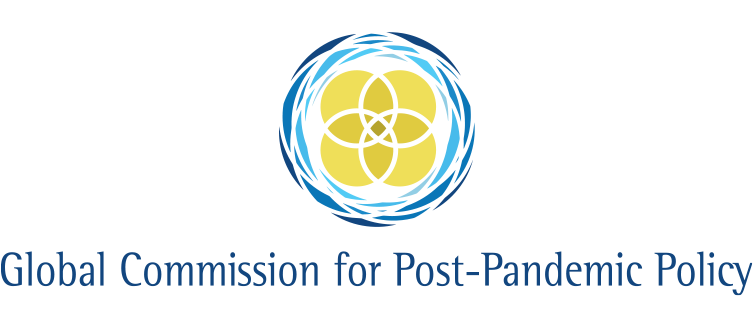Vaccinate the world
By Timothy Snyder, Commissioner, GCPPP
The U.S. has a once-in-a-lifetime opportunity to redeem itself around the globe by quadrupling its contribution to COVAX, the worldwide vaccines initiative, and pushing forward with US-based production capacity to ensure that supplies are sufficient and timely
Imagine a superpower whose reputation and influence were in steep decline. And then imagine that this superpower had the chance to save the world from a plague. It sounds like political fiction, but that is exactly where America stands.
In 2020, Americans were pitied around the world as we died in horrifying numbers from Covid. This year, America can lead the way to global vaccination and global recovery. Stunned by what we have suffered, we might overlook this opportunity. Yet a new kind of arms race is already raging: the competition to get as many of one’s own vaccines into as many foreign arms as possible.
Russia and China have been flagged as the early winners of the new arms race. With canny leaders and undemocratic regimes, they have garnered some goodwill and some photo ops with donations and bilateral deals. Yet much of the Chinese and Russian vaccination offensive comes down to declarations or deliveries of symbolic quantities of vaccines. Russia has vaccinated a small and China a tiny proportion of their own populations. China’s vaccines lag behind in trials.
Another problem for Moscow and Beijing is that what they are doing is obviously transactional. Neither has given a dime to COVAX, the international program designed to vaccinate the neediest around the world.
By donating $2.5 billion to COVAX and committing more for next year, the Biden administration placed United States at the top of its list of donors. That is a start. But it is not a breakthrough.
Corona is the crisis of our time. It makes headlines and haunts minds everywhere and every day. Only about 1% of the world population is vaccinated, whereas soon most Americans will be. American leaders need to think much bigger, about a foreign policy that transforms global public health — and America’s reputation. They need to think about vaccinating the world. That is the only arms race worth winning.
The United States should quadruple its contribution to COVAX. In doing so, it would present itself as the clear leader of the world in the most desperate and important struggle of our times. For a foreign policy that will have tremendous benefits around the world, $10 billion is very cheap: it is one seventieth (not one seventh, one seventieth) of our defense budget. And it is not our fighter planes and our aircraft carriers that can save the world in 2021, but our vaccines.
Funding COVAX is a bargain. It is also the right thing to do for public health here in the United States: Covid will never be under control anywhere until it is under control everywhere. It is also a very cheap form of economic stimulus. When the world economy recovers, so will the American.
Having done the right thing by the world, the Biden administration would be free to carry out vaccine diplomacy. Unlike Russia and China, the United States will soon have huge stockpiles of vaccines that are of demonstrated safety and efficacy. America has a production capacity that will very soon outstrip domestic demand. Rather than pulling back from production, the Biden administration should push forward, with the idea that America should help to vaccinate as many people as possible around the world.
After donations of vaccines to the neediest, this should involve support for allies and friends. Again, first steps have been taken. After making its contribution to COVAX, the Biden administration made a quadrilateral arrangement with Japan, Australia, and India to help vaccinate southeast Asia. A next stop could be Europe, where close allies are in big trouble. Last year the Europeans generally did a better job than we did in controlling the virus. They have stumbled, however, on vaccination, which is proceeding too slowly to halt the virus.
If the United States chose to aid Europe, it could restart crucial diplomatic relationships with our most important group of democratic allies. Any chance for a reassertion of U.S. influence in the twenty-first century around the world depends upon a much better relationship with Europe. Given that these are democracies, this depends upon the good will of European voters towards the United States.
A program coordinated with the European Union would be of interest for both sides. The Europeans have been scrambling for vaccines, and would have their own ideas about where need is highest. We should listen to the leaders of European democracies, help where we can, and share the credit with them: as we did with the Marshall Plan, after the Second World War. Discontent with the pace of vaccination translates into discontent with democracy and with European integration. Turning the tide would change all of that.
The Russian and the Chinese propaganda message is that democracy is a mess, and that only tyranny keeps you safe. America has a perfect opportunity to show the opposite. Vaccinating the world will help America’s power position with respect to these rivals more than any other conceivable action.
Getting enough vaccines to enough EU countries by summer could amount to an axial moment in U.S.-European relations, one that will be remembered, like the Marshall Plan, for decades. Indeed, America should be thinking beyond the European Union: about Ukraine, for example, a friendly country, and a needy one, that we have rudely mishandled these last four years.
Vaccinating the world means doing well by doing right. And doing right begins with the most vulnerable. This means, above all, an American commitment to help vaccinate the neediest around the world. A second donation to COVAX and vaccine donations to the most needy come first. Regional initiatives to help allies come next. Such an approach would marry good will with national interest.
Covid is the greatest international crisis since the Second World War. Any power that can solve it would be wrong and foolish not to. The United States has a once-in-a-century chance to do well by doing right.
This article was first published in Timothy Snyder’s Substack newsletter, “Thinking about…”,
Photo by Luke Stackpoole on Unsplash
GCPPP Newsletter
We now publish a weekly newsletter to inform friends and supporters of the Global Commission’s progress and to provide updates when new content is published. Please sign up here:




 Fateme Alaie, Unsplash
Fateme Alaie, Unsplash




